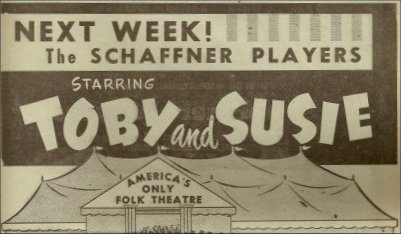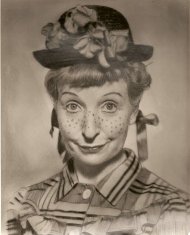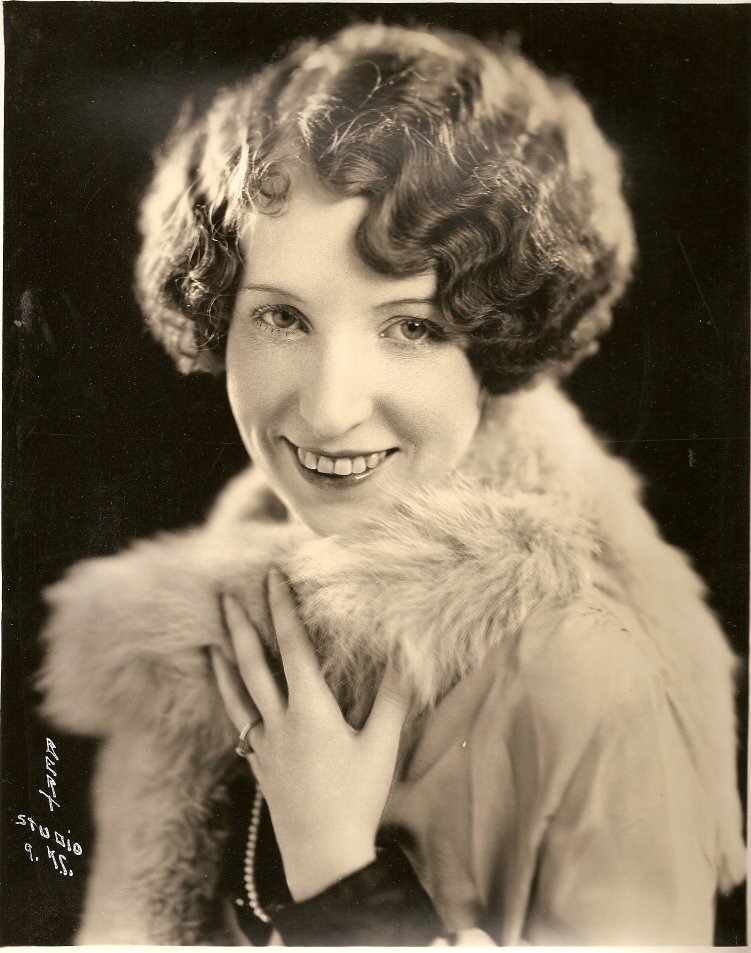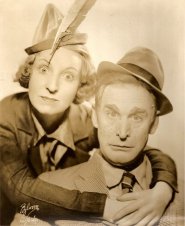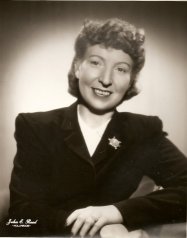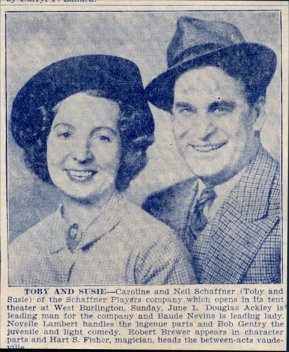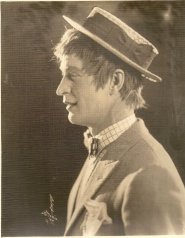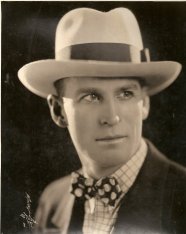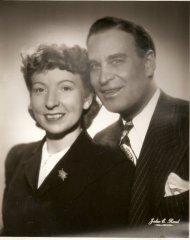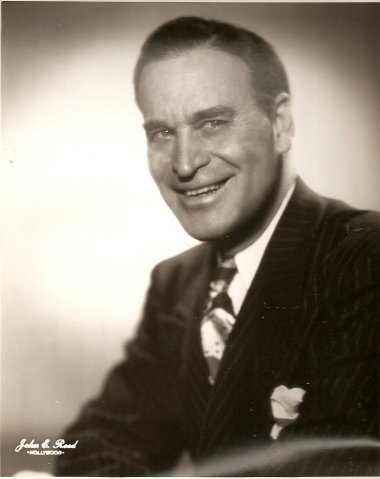| Tobyand Susie subject of feature story in St. Louis newspaper Source: The Republican, Wapello, Iowa,Thursday, Sept. 15, 1949
By Francis A. Klein, Globe-Democrat staff writer
The Toby and Susie shows, owned by Mr. and Mrs. Neal Schaffner, and well known here, was the subject of a feature story in a recent issue of the St. Louis Globe-Democrat. Toby and Susie begin their tours from here (Wapello) each year and have countless friends in this community. The interesting story follows:
Monroe City, Missouri, September 3 -- Slowly the big tent filled. There were chairs for the elect -- for those, that is, who elected to pay 13 cents over the modest admission price of 43 cents. For those who didn't there were the "blues" -- typical circus seats and still called blue even though these happen to be painted red, that tents was pitched amid the big trees of North Park, and the long grass underfoot took the place of the traditional sawdust.
But this wasn't his circus, and it wasn't a circus audience. Rather it was the Toby and Susie Shell operated by Neil E.Schaffner, and his players, who are legend in central and northernMissouri. Besides bad peer, it's the oldest amusement venture in theworld in continuous operation. And the audience was a cross-section of middle America -- farmers, mechanics, tradesmen, shopkeepers; the kind you are meant. When it's a question of "the people."
Being from Missouri, it was a show me audience to. The Schaffner players, who usually follow a set circuit, had never been here before. The crowd was waiting. One could feel the challenge in the air. This Toby and Suzy's staff had better be good, or else.
The lively little orchestra, in which three players handle thrice that many instruments, gave them the "Light Cavalry Overture" and "Poet and Peasant," and then the toe-tapping"I've been Working on the Railroad," which ended in the blare and abang -- and Toby popped through the curtain.
There was a polite scattering of applause, nomore. Toby, who is Schaffner himself, reared back, astounded. His battered straw hat almost fell off his red thatch."Na-o-o-ow, folks," he drawled, "that's nice, but it ain'thalf the ruckus I ought to have. Let's try it over again, hadhu-u-uh?" And from that moment, Toby, the master showman, held themin the hollow of his hand, so great was the personality he project edover the footlights.
Blase Broadway boy wonders could well take lessons from this veteran of 40 years of trooping in the difficultart of thawing an absolutely cold audience. In a matter of minutes,Toby had them completely on his side, and, long before the show was over, he was their favorite, and had won a place in 1,416 more hearts.(Actual box office count!). the entire population of the city is only 1978. These he could head to the hundreds of thousands who haveapplauded him over the years.
For, you see, Toby and Susie and the Schaffner players draw from 5,000 to 7,000 weekly, and the troupe is on the road 19 weeks each season. No wonder there are so many Toby fans in the territory! And that box office would be manna from heaven. For most of Broadway's best. The fact that it's garnered in the hinterland, where people are drama hungry, doesn't lessen the fact that it's legitimate box office, and doesn't mean that inferior affair is offered.
On the contrary, this traveling tent repertoire group is first class shows with streamlined settings which move with clock-like precision. It isn't arty, it isn't experimental,and it isn't subsidized. There are no "East Lynne" or "Uncle Tom's Cabin" type of drippy melodramas in the list. The props and scenery are the best, and are kept in perfect condition. Costumes are impeccable. All the gadgets work. When the telephone is supposed to rain, it does. When the lights are supposed to go on and off, they do.
What Toby and his Schaffner players have done is to bring the theater, complete to a 60-circuit electrical switch board and off stage sound effects, directly to the people. That it is mobile, that the big, fire proof tent and equipment can be torndown and loaded in an hour and a half is all the more to the people'sadvantage, because that means that more of them can get to see Toby and Susie.
The Schaffner players give a different show each night of their week stay in a town. Here they open in "How Funny Are People," a play with a smash ending. Tuesday they followed with "Fuedin' and Fightin'," a marital venture, then through the week with "The Return of Aunt Susan," pure comedy; "Too Bashful for Betty," "In Bed with Grandpa," "The Hesitatin' Cowboy" and "Who Stole Sally's Slacks?" the latter a farce which ends all up in good humor and leaves a fine taste for the following season.
The Schaffner players set great store by their farewell: "See you next year." Unlike a carnival or other one-night stand, they are not afraid to come back; in fact, they want to return,and they know they'll be welcomed by those who have sampled their folk theater. They've proved the drama isn't dead in America, at least notin Mid-America.
Don't let the titles of any of these plays fool you. One staying Schaffner insists upon an implacably, and that's clean entertainment. It must be good and it can be funny as possible, but smut is barred, always and forever. Schaffner doesn't defend hisposition, nor expect credit for it; he simply states a fact.
"We can't have it," he says. "Thousands of children attend our shows. That's reason enough. We don't need that kind of thing to put our shows across. Maybe Hollywood does. I don'tknow.
"I do know this. It would do Hollywood a world of good to get out of Hollywood and mingle with the people for a change. Maybe the producers would get the right perspective. They lost sight ofthe common man, and live in an atmosphere of artificiality. The rest ofthe world doesn't live like that; they should come down to earth.
"The movies? They're no competition to us at all. Why in many of the towns we play in, the movie house closes during our stay, and a manager comes to our show!"
Schaffner was relaxing back stage after his verysuccessful opening here. He had been taught as a fiddle string, keyedup to the business at hand. Now a genial and gracious, he was ready to talk about anything, but particularly Toby. Toby is a comedian said Schaffner, who is one of the four or five veteran Toby players in the land, but more than that, he's a composite of Mr. Midwest. Everyone in the audience can see something of themselves in him; he's their alter ego. He says the things that they want to say, but never think of intime.
Toby's name, in full, is Tobias T. Tolliver, and as Schaffner playshim, he's as Midwestern as tall corn. There have been Toby is as far back as English theater history goes, but it's believed that Fred Wilson of Oklahoma gave the modern-day Toby his name by appearing so often in characters of that name that it's stuck to them. Others followed his lead, and before long there weren't enough to be placed togo around.
Toby, as Schaffner plays him, is a country bumpkin with the traditional red hair and freckles, light enough, but underneath this father and his seeming hayseed nests are a native shrewdness and keen wit, which makesthe most of every situation, turning even the adverse into advantagefor Toby.
Schaffner doesn't employ slapstick at all, butgets his laughs by a judicious use of language and pantomime. For example, he's the hired Man and the bosses loading him up with orders.Do this and do that till poor old Toby's head is dizzy.
He exits and reenters carrying a Bible. What itwas that the boss asks Toby looks at the bridal and claps at on itshead. The very action brings roars from the crowd. Tell me once, then drawls: while if I have to work like a horse, I might as well look like one!"
Schaffner was a total be long before he got hisown show, which at present represents a $40,000 investment in trucks and trailers, the attempt, which has a 60 x 23 foot stage, and the sundry other equipment necessary to this theater on Wales. As a boy inFort Dodge, Iowa, he worked at the Midland Opera House, doing a variety of chores rising step by step until he was assistant cashier andtreasurer. Then, in 1909, he was out of high school and went with ashow in Black Duck, Minnesota, as a comedian.
From then on down through the years he was withmany shows, including vaudeville, which is undergoing a revival of late, and traveled from coast to coast and back again. He tired of it,he was making big money, but wasn't getting anywhere, at least not in the things he wanted to do. Then, in 1923, he joined J. S. Angell inthe latter's tent show.
This has come down, and in direct line and continuous operation, since 1855, when one "Yankee" Robinson started it in Rock Island, Illinois. Since then, it has had only four owners --founder, then Charles Emerson, then Angel and now Schaffner. A year or so after the latter went with the shell, Angel sold out to him.
Allow up this time, too there is aningénue in the company, Carolina Hannah, who had been with the Horner- Redpath Institute of Fine Arts in Kansas City and a dramatic reader on the Chautauqua circuit. she was born in Texas and reared in Louisiana, and graduated from the State University. She is still with the company, only she's Mrs. Schaffner now. She is the"Susie" of the Toby and Susie Show.
Off when she's Toby's girlfriend, and when she's not, she's playing character parts. The Schaffners have one son, Rome, who is a junior at the University of Iowa. In the summer he tours with the company, gives a fine account of himself dramatically and also doubles in brass with the business affairs.
The Schaffner's write most of the plays they produce, which puts them among the few stage personalities who write and star in place which they themselves produce in the theater which they carry with them. And they probably play two more paid admissions than any other "legit" can boast. Their plays are mostly on the lightside, for they look upon her work as a sort of mission to bring somegaiety and the lives otherwise drab and unrelieved.
They carry persons, and the weekly overhead runsto some $1,500. Besides themselves, the actors include Donald Lasley,who has had careers as far apart as an able pilot and a night club entertainer; Don Weage, who is a graduate of the American Academy of Dramatic Arts in New York; Dick Ellis, a University of Minnesota graduate who has had a taste of Hollywood, and who both dances and acts, Ed C. Ward, a character man who once headed his own show, the Princess Stock company, which is part of Missouri's history. Besides that, Ward is a whiz on the piano and trombone.
The women in the cast, other than Susie, are Dorothy Eddy of Chicago, the leading lady, who also teams with Ellis indance routines, and Janice Davis of San Antonio, theingénue, who is a vocalist to. The orchestra includes Ward and the Musical Greys, Erman and Goldie, who are Mr. and Mrs. in private life. They play many instruments and switch from one to another with amazing facility to make the ban to sound much larger than it is.
It's on this framework that the shatters he wrecked their shows each year it's different -- new shows, new casts.That's what they do in the winter at their Cedar Rapids Iowa home in between radio commitments; write new plays and assemble players, whoreport in the spring for training.
Then along about the third week in May, they'll open in Wapello, Iowa,and then the circuit takes them to Burlington, Mount Pleasant, Deltaand Fairfield, Iowa; Kahoka, Missouri; Quincy and Camp Point, Illinois,and then Palmyra, Hannibal, Lewistown, Edina, Queen City, Memphis and Unionville, all in Missouri, ending in Centerville and Ottumwa, Iowa.That takes him into early October, after which it's too cold for tentshows. This year, Monroe City has replaced Lewistown, and Shelbina has been substituted for Edina.
"Yes, we could use about four August's in this business, Syed Schaffner, and even mean Gus, the Deuel boy. This seasonis too short for all the places we'd like to visit. He can't take theshow into town; and even if I got a theater rent free, the otheroverhead, musicians, stagehands and so on, would eat me alive.
"Now all this is the way it has to be, and it's agood business. There's a reason for that, too, because we never lose sight of George M. Cohan's maxim there is only one excuse for bad business, and that's a bad show."
With that in mind, from here it looks as if Tobyand Susie in the Schaffner players will be doing business on the samecircuit for a good many years to come. "The Fabulous Toby and Me" Basedon news articles about Neil Schaffner's 1968 book "TheFabulous Toby and Me" Neil Schaffner's autobiographical book "The Fabulous Toby and Me"
published by Prentiss-Hall, was released in January 1969. It could be considered the most complete story of the repertoire theaterin America.
Schaffner wrote and produced his first play when he was 14. His career began in 1909 when the theater moved from town-to-town via stage coach.
He was born May 24, 1892 in Fort Dodge, Iowa. After dropping out of high school, he joined a tent show, later becoming the manager. In early 1925, he hired a girl named Caroline Hannah. They were married July 24, 1925.
Neil's first memories of Wapello were when heplayed at the Keck Theater about 1914. In the 1930s, Wapello's "Daddy"Lishner offered to haul the show from town to town and to also store the equipment during the winter.
The Shaffners made Wapello their headquarters, planned their shows there and held rehearsals in Wapello each spring.They bought a house near their storage barn in Wapello. Wapello resident, Kenneth McChesney remembers helping set up the tents for the shows.
In 1962, the Schaffners retired and Jimmie Davisof the Columbus Junction-Winfield area bought the business. Davis operated the show until his death Feb. 20, 1998. Jimmie is buried at Cambrian Cemetery near Cotter, Louisa County. Neil died in 1969. Caroline Schaffner died at her home in Mount Pleasant in October 1998 at age 97. Neil and Caroline are buried at the Wapello Cemetery. Their marker is very simple with comedy and tragedy masks as the only decoration. Note:The photos of the Schaffners and the marquee are on file at the Louisa County Historical Society, 609 N. James L. Hodges Ave., Wapello, Iowa. The photos of their house and grave were taken by Connie Street in 2009. |
